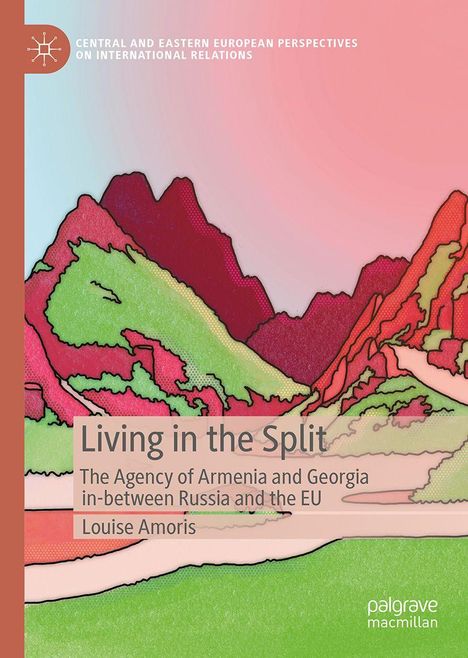Louise Amoris: Living in the Split, Gebunden
Living in the Split
- The Agency of Armenia and Georgia In-Between Russia and the EU
(soweit verfügbar beim Lieferanten)
- Verlag:
- Springer, 02/2026
- Einband:
- Gebunden
- Sprache:
- Englisch
- ISBN-13:
- 9783032065766
- Artikelnummer:
- 12417517
- Umfang:
- 424 Seiten
- Gewicht:
- 656 g
- Maße:
- 216 x 153 mm
- Stärke:
- 28 mm
- Erscheinungstermin:
- 3.2.2026
- Hinweis
-
Achtung: Artikel ist nicht in deutscher Sprache!
Klappentext
Since the turn of the 2020s, Eastern Europe and the South Caucasus have been the stage of major upheavals -- from the Second Nagorno-Karabakh War and the dissolution of the self-proclaimed republic, to massive protests in Belarus and Georgia, and Russia's full-scale invasion of Ukraine. Yet the agency of the "in-between" countries in the EU's and Russia's shared neighbourhood has been largely overlooked in International Relations, where they are often portrayed as passive victims in the hands of regional powers.
This book challenges that view, showing how these countries -- particularly Armenia and Georgia -- can be active agents capable of shaping both their own futures and that of the region. Focusing on the period from 2008 to early 2024, it explores how Armenia and Georgia use their liminal subjectivity in-between two competing regional cores as a resource for agency in the framework of their foreign policy. Strikingly, both countries have significantly reshaped their liminality and related agency over the covered period.
Relying on a poststructuralist approach to discourse analysis, this book traces Armenia's and Georgia's evolving identity and foreign policy discourse, revealing how they (re-)articulate their role identity. It highlights how their agency produces both reproductive and subversive effects on hegemonic structures, while creating divisive and connective representations of their regional environment.
Inspired by a postcolonial research agenda, this study amplifies the voices of subaltern actors entangled in hierarchical structures. By examining agency through the lens of liminality and its interplay with ontological (in)security, it contributes to the growing trend in International Relations that foregrounds the specific perspectives and agency of countries in the EU's and Russia's neighbourhood -- departing from dominant Eurocentric and Russo-centric views on the region.

